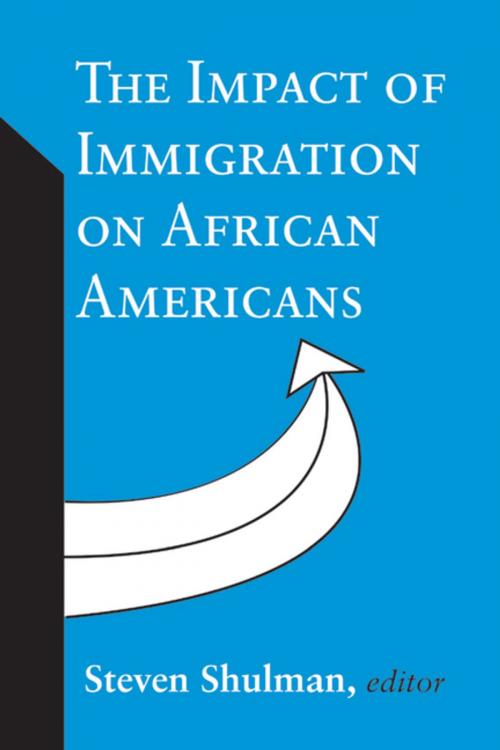The Impact of Immigration on African Americans
Nonfiction, Social & Cultural Studies, Social Science, Cultural Studies, Emigration & Immigration, Sociology| Author: | ISBN: | 9781351480994 | |
| Publisher: | Taylor and Francis | Publication: | September 4, 2017 |
| Imprint: | Routledge | Language: | English |
| Author: | |
| ISBN: | 9781351480994 |
| Publisher: | Taylor and Francis |
| Publication: | September 4, 2017 |
| Imprint: | Routledge |
| Language: | English |
Immigration has significant consequences for all Americans, but especially for African Americans.áThe sheer magnitude of immigration--it is the primary factor driving population growth--is so large that it directly or indirectly affects the economic, political, social, and environmental circumstances of most Americans.áBut the geographic concentration of immigrants in urban areas, and the economic concentration of immigrants in the low-wage sector of the labor market, have special consequences for African Americans since they are especially likely to live in urban areas and to be low-wage workers.These effects can be both negative and positive. Immigration has sharply increased the supply of labor into the low-wage sector of the labor market, which tends to reduce wages and employment opportunities for low-wage native workers. Employers may prefer hiring immigrants, who are perceived to be hard working and uncomplaining, to hiring African Americans. Immigrants can also increase the competition for scarce public services (especially education) on which African Americans depend. Yet immigration can also stimulate economic growth and urban revitalization, which can increase job opportunities and spread an ideology of multiculturalism. Immigration can dilute the political power of African Americans, but it can also strengthen the civil rights coalition. Immigration can benefit some groups while hurting others.This volume presents research and analysis that reflects and advances the debates about the economic and political consequences of immigration for African Americans. The contributors include Gerald Jaynes (Yale University), Vernon Briggs (Cornell University), Frank Bean and Jennifer Lee (University of California, Irvine), Robert Cherry (Brooklyn College), Manuel Pastor (University of California, Santa Cruz) and Enrique Marcelli (University of Massachusetts, Boston), Steven Camarota (Center for Immigration Studies), Frank Morris (University of Texas, D
Immigration has significant consequences for all Americans, but especially for African Americans.áThe sheer magnitude of immigration--it is the primary factor driving population growth--is so large that it directly or indirectly affects the economic, political, social, and environmental circumstances of most Americans.áBut the geographic concentration of immigrants in urban areas, and the economic concentration of immigrants in the low-wage sector of the labor market, have special consequences for African Americans since they are especially likely to live in urban areas and to be low-wage workers.These effects can be both negative and positive. Immigration has sharply increased the supply of labor into the low-wage sector of the labor market, which tends to reduce wages and employment opportunities for low-wage native workers. Employers may prefer hiring immigrants, who are perceived to be hard working and uncomplaining, to hiring African Americans. Immigrants can also increase the competition for scarce public services (especially education) on which African Americans depend. Yet immigration can also stimulate economic growth and urban revitalization, which can increase job opportunities and spread an ideology of multiculturalism. Immigration can dilute the political power of African Americans, but it can also strengthen the civil rights coalition. Immigration can benefit some groups while hurting others.This volume presents research and analysis that reflects and advances the debates about the economic and political consequences of immigration for African Americans. The contributors include Gerald Jaynes (Yale University), Vernon Briggs (Cornell University), Frank Bean and Jennifer Lee (University of California, Irvine), Robert Cherry (Brooklyn College), Manuel Pastor (University of California, Santa Cruz) and Enrique Marcelli (University of Massachusetts, Boston), Steven Camarota (Center for Immigration Studies), Frank Morris (University of Texas, D















